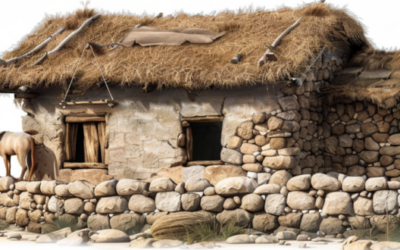Q comes from the German “Quelle” meaning “source.” Some biblical scholars have proposed that there was a document prior to the writing of the gospels which was used by the writers of Matthew and Luke as a source of information.1 They have called this hypothetical document “Q” also sometimes known as the Gospel of Q It is hypothetical because there is no proof that the document existed.  Nevertheless, this proposal has gained some acceptance in scholarly circles due to the very close similarities and identical written accounts found in both Matthew and Luke. It is reasoned that very similar accounts must be taken from a common source. Since Matthew was probably originally written in Hebrew or Aramaic according to the historian Papias, and all we have is the Greek texts, some conclude that a translation of the Hebrew gospel of Matthew into Greek would have resulted in translations slightly different from the Luke accounts. But since some of the accounts are identical, it is proposed that Matthew and Luke shared a common reference source. This is perfectly reasonable and we do see differences in translations as well as identical wording. Is this the result of an unknown document known as Q? Perhaps, but there is no way to be sure since it is possible that one copied from another or copied from Mark. Following is a small sample chart of some of the sayings in Matthew and Luke that are identical as is demonstrated by being underlined. The text is taken from the NASB.
Nevertheless, this proposal has gained some acceptance in scholarly circles due to the very close similarities and identical written accounts found in both Matthew and Luke. It is reasoned that very similar accounts must be taken from a common source. Since Matthew was probably originally written in Hebrew or Aramaic according to the historian Papias, and all we have is the Greek texts, some conclude that a translation of the Hebrew gospel of Matthew into Greek would have resulted in translations slightly different from the Luke accounts. But since some of the accounts are identical, it is proposed that Matthew and Luke shared a common reference source. This is perfectly reasonable and we do see differences in translations as well as identical wording. Is this the result of an unknown document known as Q? Perhaps, but there is no way to be sure since it is possible that one copied from another or copied from Mark. Following is a small sample chart of some of the sayings in Matthew and Luke that are identical as is demonstrated by being underlined. The text is taken from the NASB.
| Matt. 3:7-10, “But when he saw many of the Pharisees and Sadducees coming for baptism, he said to them, “You brood of vipers, who warned you to flee from the wrath to come? 8 “Therefore bring forth fruit in keeping with repentance; 9 and do not suppose that you can say to yourselves, ‘We have Abraham for our father’; for I say to you, that God is able from these stones to raise up children to Abraham. 10 “And the axe is already laid at the root of the trees; every tree, therefore, that does not bear good fruit is cut down and thrown into the fire.” | Luke 3:7-9, “He, therefore, began saying to the multitudes who were going out to be baptized by him, “You brood of vipers, who warned you to flee from the wrath to come? 8 “Therefore bring forth fruits in keeping with repentance, and do not begin to say to yourselves, ‘We have Abraham for our father,’ for I say to you that God is able from these stones to raise up children to Abraham. 9 “And also the axe is already laid at the root of the trees; every tree, therefore, that does not bear good fruit is cut down and thrown into the fire.” |
| Matt. 23:37, “O Jerusalem, Jerusalem, who kills the prophets and stones those who are sent to her! How often I wanted to gather your children together, the way a hen gathers her chicks under her wings, and you were unwilling.” | Luke 13:34, “O Jerusalem, Jerusalem, the city that kills the prophets and stones those sent to her! How often I wanted to gather your children together, just as a hen gathers her brood under her wings, and you would not have it!” |
| Matt. 11:2-6, “Now when John, while imprisoned, heard of the works of Christ, he sent word by his disciples 3 and said to Him, “Are You the Expected One, or shall we look for someone else?” 4 Jesus answered and said to them, “Go and report to John what you hear and see: 5 the blind receive sight and the lame walk, the lepers are cleansed and the deaf hear, the dead are raised up, and the poor have the gospel preached to them. 6 “And blessed is he who does not take offense at Me.” See also Matt. 8:18-22 with Luke 9:57-62; Matt. 17:19-20 with Luke 17:5-6; Matt. 25:14-30 with Luke 19:11-27 | Luke 7:18-23, “The disciples of John reported to him about all these things. 19 Summoning two of his disciples, John sent them to the Lord, saying, “Are You the Expected One, or do we look for someone else?” 20 When the men came to Him, they said, “John the Baptist has sent us to You, to ask, ‘Are You the Expected One, or do we look for someone else?’ ” 21 At that very time He cured many people of diseases and afflictions and evil spirits; and He gave sight to many who were blind. 22 And He answered and said to them, “Go and report to John what you have seen and heard: the blind receive sight, the lame walk, the lepers are cleansed, and the deaf hear, the dead are raised up, the poor have the gospel preached to them. 23 “Blessed is he who does not take offense at Me.” |
As I said above, another theory is that Matthew and Luke copied from Mark. Please consider the following quote which deals with both the Q theory and the Markan Source theory.
“It is plain as a pikestaff that both our Matthew and Luke used practically all of Mark and followed his general order of events. For this reason Mark has been placed first on the pages where this Gospel appears at all. But another thing is equally clear and that is that both Matthew and Luke had another source in common because they each give practically identical matter for much that is not in Mark at all. This second common source for Matthew and Luke has been called Logia because it is chiefly discourses. It is sometimes referred to as “Q.”2
The above quote from A.T. Robertson, one of the foremost Greek scholars of the 20th century, is a good reflection of the position of many scholars. It may be that there was a common source for Matthew and Luke, either Q or Mark, or a combination of both.
If Q is true, are the gospels inspired?
Some people say that the Q theory invalidates the inspiration of the gospels since it would mean that the writers copied their material from one another and were then not inspired by God. But this does not invalidate inspiration at all. If Q is an actual source it does not invalidate the validity of the gospels. Why would copying from an earlier source invalidate the Gospels or say they were not inspired? Can God not inspire a writer as he copies from another document? Of course. If anything, the existence of Q would mean that the time between the actual events and their written record is lessened. In other words, Q would have to precede Matthew and Luke. This would mean that there is a source even earlier than those gospels which only adds to the validity of the accuracy of the gospels since it shortens the time between the event and the record.
If Mark was a source of Matthew and Luke, then…
Furthermore, if Mark was used as a source for Matthew and Luke, how would he have known what to write about if he wasn’t an eyewitness? This isn’t a problem because Mark was a disciple of Peter and Peter was in the inner circle with Jesus. Therefore, Mark received his information from Peter who was an eyewitness. Also, Matthew, who was a disciple, agrees with the account of Mark’s gospel concerning Jesus and the events surrounding Him as is evidenced in his account. There is no disagreement between them, only confirmation and verification. So, we have confirmation of Mark’s accuracy.3
References
| 1↑ | Achtemeier, Paul J., Harper’s Bible Dictionary, San Francisco: Harper and Row, 1985. |
|---|---|
| 2↑ | Robertson, A.T., A Harmony of the Gospels, New York: Harper & Row, 1950, p. 255. |
| 3↑ | Richard A. Edwards, A Theology of Q: Eschatology, Prophecy, and Wisdom, Philadelphia: Fortress Press, 1976, and John S. Kloppenborg Excavating Q: The History and Setting of the Sayings Gospel, Minneapolis, MN: Fortress Press, 2000. |




